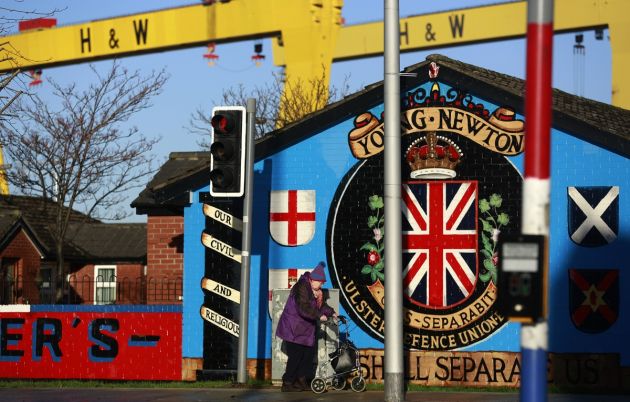Northern Ireland Catholic and Protestant party talks break down

Five of the key political parties that represent both Roman Catholics and Protestants in Northern Ireland have failed to reach an agreement on how to deal with provocative community marches and flags that will fly on public buildings.
Their talks went on until the early hours of Tuesday and were chaired by U.S. diplomat Richard Haass, the director of the New York-based Council on Foreign Relations.
Haass said an agreement was "not there," but noted that there had been "significant progress" in the goal.
After a lull of some years, Protestant and Catholic-backed marches and the flying of the British Union flag from public buildings have triggered bloody inter-community clashes, the worst unrest in 10 years.
"Although it is disappointing the parties have not been able to reach full agreement at this stage, these talks have achieved much common ground, providing a basis for continuing discussions," said British Prime Minister David Cameron after the talks floundered.
"The choice is not between the text and some ideal," said Haass. "Rather it is the choice between going forward with an agreement of this sort which necessarily represents some compromise, and the status quo."
Haass said all parties supported aspects of a proposed agreement on how to deal with flags, disputed parades and the legacy of decades of conflict known as the Troubles, but a number of concerns remained.
The U.S. diplomat had supported George J. Mitchell who brokered the Belfast Peace Agreement signed on Good Friday 1998 that advanced the peace process to resolve the conflict in Northern Ireland.
Before that Northern Ireland, which is on the island of Ireland and is administered as part of the United Kingdom, was engulfed in decades of bloody conflict that killed almost 4,000 people.
These involved Catholic supporters of Northern Ireland being part of Ireland, known locally as Republicans, and Protestants wanting to keep their ties with Britain, called loyalists, along wwith armed forces from the United Kingdom sent to quell unrest.
Haass said all parties supported aspects of a proposed agreement on how to deal with flags, disputed parades and the legacy of the Troubles, but a number of concerns remain.